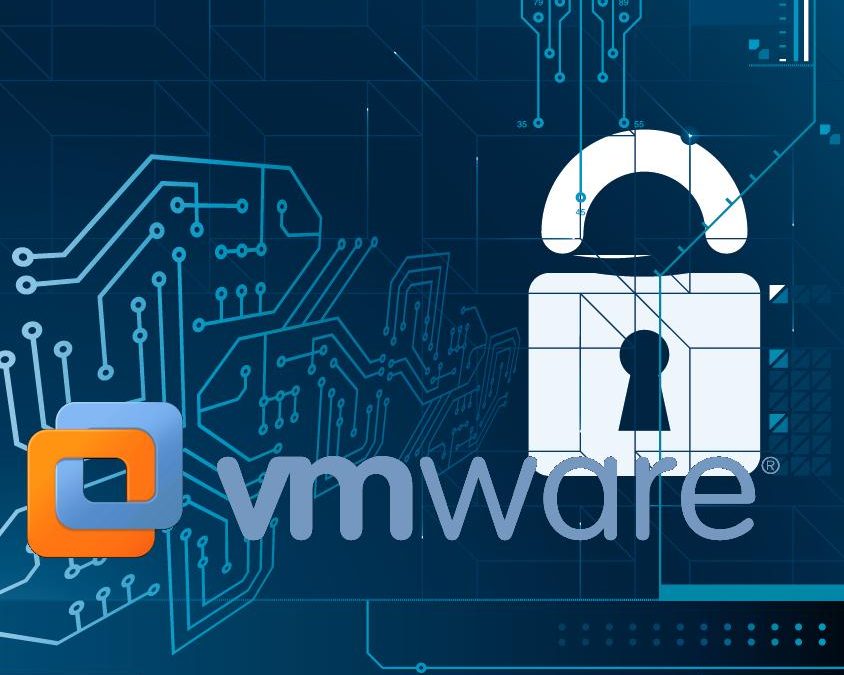Threat Actors Chaining Unpatched VMware Vulnerabilities for Full System Control.
The Cybersecurity and Infrastructure Security Agency (CISA) is releasing this Cybersecurity Advisory (CSA) to warn organizations that malicious cyber actors, likely advanced persistent threat (APT) actors, are exploiting CVE-2022-22954 and CVE-2022-22960 separately and in combination. These vulnerabilities affect certain versions of VMware Workspace ONE Access, VMware Identity Manager (vIDM), VMware vRealize Automation (vRA), VMware Cloud Foundation, and vRealize Suite Lifecycle Manager. Exploiting these vulnerabilities permits malicious actors to trigger a server-side template injection that may result in remote code execution (RCE) (CVE-2022-22954) or escalation of privileges to root (CVE-2022-22960).
VMware released updates for both vulnerabilities on April 6, 2022, and, according to a trusted third party, malicious cyber actors were able to reverse engineer the updates to develop an exploit within 48 hours and quickly began exploiting the disclosed vulnerabilities in unpatched devices. CISA was made aware of this exploit a week later and added CVE-2022-22954 and CVE-2022-22960 to its catalog of Known Exploited Vulnerabilities on April 14 and April 15, respectively. In accordance with Binding Operational Directive (BOD) 22-01, Reducing the Significant Risk of Known Exploited Vulnerabilities, federal agencies were required to apply updates for CVE-2022-22954 and CVE-2022-22960 by May 5, and May 6, 2022, respectively.
Based on this activity, CISA expects malicious cyber actors to quickly develop a capability to exploit newly released vulnerabilities CVE-2022-22972 and CVE-2022-22973 in the same impacted VMware products. In response, CISA has released, Emergency Directive (ED) 22-03 Mitigate VMware Vulnerabilities, which requires emergency action from Federal Civilian Executive Branch agencies to either immediately implement the updates in VMware Security Advisory VMSA-2022-0014 or remove the affected software from their network until the updates can be applied.
CISA has deployed an incident response team to a large organization where the threat actors exploited CVE-2022-22954. Additionally, CISA has received information—including indicators of compromise (IOCs)—about observed exploitation at multiple other large organizations from trusted third parties.
This CSA provides IOCs and detection signatures from CISA as well as from trusted third parties to assist administrators with detecting and responding to this activity. Due to the rapid exploitation of these vulnerabilities, CISA strongly encourages all organizations with affected VMware products that are accessible from the internet—that did not immediately apply updates—to assume compromise and initiate threat hunting activities using the detection methods provided in this CSA. If potential compromise is detected, administrators should apply the incident response recommendations included in this CSA.. If potential compromise is detected, administrators should apply the incident response recommendations included in this CSA.
Technical Details
CISA has deployed an incident response team to a large organization where the threat actors exploited CVE-2022-22954. Additionally, CISA has received information about observed exploitation of CVE-2022-22954 and CVE-2022-22960 by multiple threat actors at multiple other large organizations from trusted third parties.
- CVE-2022-22954 enables an actor with network access to trigger a server-side template injection that may result in RCE. This vulnerability affects the following products:[1]
- VMware Workspace ONE Access, versions 21.08.0.1, 21.08.0.0, 20.10.0.1, 20.10.0.0
- vIDM versions 3.3.6, 3.3.5, 3.3.4, 3.3.3
- VMware Cloud Foundation, 4.x
- vRealize Suite LifeCycle Manager, 8.
- CVE-2022-22960 enables a malicious actor with local access to escalate privileges to root due to improper permissions in support scripts. This vulnerability affects the following products:[2]
- VMware Workspace ONE Access, versions 21.08.0.1, 21.08.0.0, 20.10.0.1, 20.10.0.0
- vIDM, versions 3.3.6, 3.3.5, 3.3.4, 3.3.3
- vRA, version 7.6
- VMware Cloud Foundation, 3.x, 4.x,
- vRealize Suite LifeCycle Manager, 8.x
According to trusted third-party reporting, threat actors may chain these vulnerabilities. At one compromised organization, on or around April 12, 2022, an unauthenticated actor with network access to the web interface leveraged CVE-2022-22954 to execute an arbitrary shell command as a VMware user. The actor then exploited CVE-2022-22960 to escalate the user’s privileges to root. With root access, the actor could wipe logs, escalate permissions, and move laterally to other systems.
Threat actors have dropped post-exploitation tools, including the Dingo J-spy webshell. During incident response activities, CISA observed, on or around April 13, 2022, threat actors leveraging CVE-2022-22954 to drop the Dingo J-spy webshell. Around the same period, a trusted third party observed threat actors leveraging CVE-2022-22954 to drop the Dingo J-spy webshell at one other organization. According to the third party, the actors may have also dropped the Dingo J-spy webshell at a third organization.
Source:


Stay connected